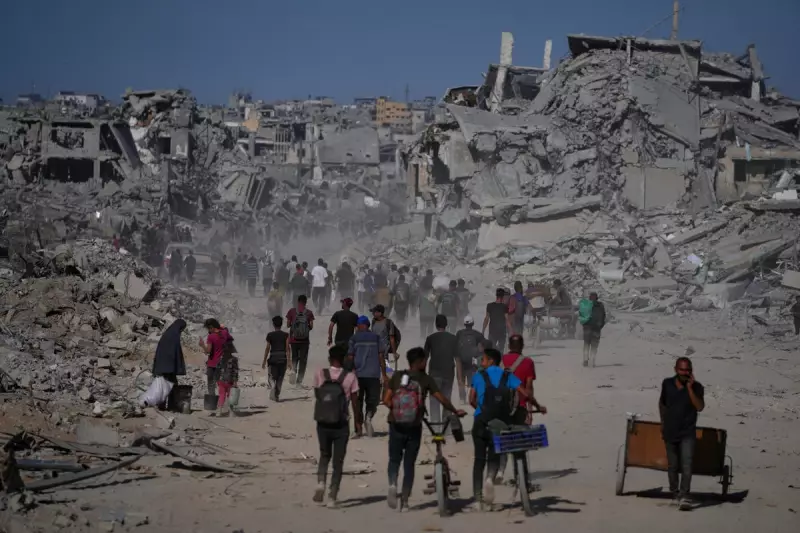
The ongoing conflict in Gaza has triggered an environmental catastrophe of unprecedented scale, with water systems and natural ecosystems pushed to the brink of total collapse, according to damning new evidence gathered by The Independent.
Water Systems in Total Disrepair
Critical water infrastructure across the Gaza Strip has been systematically destroyed, leaving nearly the entire population of 2.3 million people without access to clean drinking water. Desalination plants, wastewater treatment facilities, and pumping stations lie in ruins after months of intense bombardment.
Public health experts warn that the situation has created a perfect storm for disease outbreaks, with contaminated water sources becoming breeding grounds for cholera, typhoid, and other waterborne illnesses.
Ecosystems Pushed Beyond Recovery
The environmental damage extends far beyond urban areas, with Gaza's delicate coastal and agricultural ecosystems suffering irreversible harm. Agricultural land has been contaminated by munitions and debris, while coastal waters show alarming levels of pollution from damaged infrastructure and untreated sewage.
"What we're witnessing is not just a humanitarian crisis but an environmental one that will take generations to repair," explains Dr. Yasmine Ahmed, an environmental scientist monitoring the situation.
The Human Cost of Environmental Destruction
- Over 90% of water sources are contaminated and unsafe for human consumption
- Agricultural production has collapsed, threatening food security
- Marine ecosystems show signs of severe chemical contamination
- Air quality has deteriorated dramatically due to constant bombardment
A Crisis That Will Outlast the Fighting
Even if a permanent ceasefire were achieved tomorrow, environmental specialists estimate that restoring basic water and sanitation systems would take years. The damage to agricultural land and marine environments may be permanent, fundamentally altering Gaza's ability to sustain human life.
The international community faces a monumental challenge in addressing both the immediate humanitarian needs and the long-term environmental restoration required to make Gaza habitable again.





